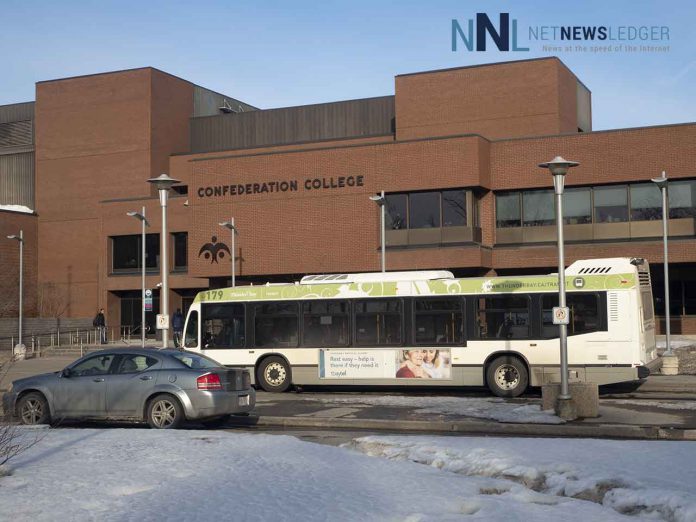THUNDER BAY — The Ontario government is investing more than $10.6 million to train 500 workers for well-paying and in-demand jobs at hospitals, long-term care homes, and with home care providers in Northern Ontario. This investment will help job seekers get the skills they need to find rewarding careers as medical laboratory assistants, personal support workers, and home support workers.
Details were provided Thursday by Monte McNaughton, Minister of Labour, Training and Skills Development, who was joined by Rod Phillips, Minister of Long-Term Care, and Greg Rickford, Minister of Northern Development, Mines, Natural Resources and Forestry, and Minister of Indigenous Affairs on a Zoom call.
“As we continue to combat the new variant, we need all hands on deck,” said Minister McNaughton. “That is why our government is taking action to ensure communities across Ontario have access to the healthcare workers they need, to receive the level of care and services they deserve. With this investment we are addressing the critical labour shortage in healthcare and working for workers in northern Ontario by training hundreds of people with meaningful and rewarding careers.”
Led by Confederation College, this project covers training, fees and textbooks for 500 participants, prioritizing those who are unemployed, underemployed, or at risk of losing their jobs. Each participant will receive a job placement in the community and ongoing support, continuing after they graduate.
“The impact of this investment by the province will support the future of the healthcare sector in our region. We are incredibly grateful for their recognition of the need for support, and their trust in Confederation College to advance this important project. Our strong relationships with local healthcare agencies will facilitate the success of this unique initiative, in which participants will contribute to community and economic growth in northwestern Ontario and essential healthcare delivery for many years to come,” states Kathleen Lynch, President, Confederation College.
“Having worked in the healthcare sector, I know how important the need is for qualified, well-trained staff working in our long-term care agencies, hospitals and home community support agencies,” said Minister Rickford. “By investing in this training, we will be connecting qualified jobseekers with employers offering in-demand healthcare careers right here in our northwestern Ontario communities.”
These changes build on the government’s work to invest in skills training opportunities and attract investments that will create good, well-paying jobs in every region of the province, including investing over $200 million in the Skills Development Fund. The government has also revamped the Second Career program, which provides up to $28,000 for people who’ve lost their jobs to get the training and skills needed to find meaningful careers close to home.
“Training and hiring more staff is part of our government’s plan to fix long-term care and to improve the quality of care residents receive and the quality of life they experience,” said Minister Phillips. “This investment will help 500 Ontarians start new careers across the healthcare sector. I am confident many of them will bring their much needed, new skills to long-term care homes right here in Northern Ontario.”
Quick Facts
Each participant could receive up to $3,000 to cover costs such as transportation, childcare, and other living expenses. The first class for this project started in November 2021 and it runs until September 30, 2023.
To apply, you can email Confederation College at SAOhealthcare@confederationcollege.ca or call 807-475-6353.
The program targets the following communities: Geraldton, Nipigon, Thunder Bay, Dryden, Kenora, Sioux Lookout, Atikokan, Terrace Bay, Marathon, Emo, Fort Frances, Red Lake and Manitouwadge as well as First Nations in the region. The training is held at Confederation College campus locations across the northwest region.
The funding for Confederation College’s new project is supported through labour market transfer agreements between the Government of Canada and the Government of Ontario.
In 2020, the healthcare and social assistance sectors employed about 870,500 people or 12.4 per cent of Ontario’s workforce.
There were 2,739 online job postings in the healthcare and social assistance sector in Northern Ontario from January to November 2021.
Medical lab assistants earned an average hourly wage of $28 in Ontario in 2020, home and community support workers $20, and personal support workers $20.

